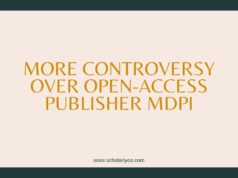
Switzerland offers a unique tax environment for expatriates and newcomers. Moving to Switzerland for work or retirement can have significant financial benefits, but it also introduces specific responsibilities.
Complying with Swiss regulations ensures that you can fully enjoy the advantages that come with living there. However, some may find navigating Swiss residency rules complex.
This article offers a practical guide, covering key aspects such as tax residency, reporting requirements, and obligations for individuals new to the Swiss system.
Key Points:
- Swiss residency depends on time spent and purpose of stay.
- Income and assets are taxed based on residency status.
- Swiss cantons have varying tax systems and rates.
- Permit types determine residency status and tax responsibilities.
- Filing obligations apply both to residents and non-residents with income in Switzerland.
Swiss Tax Residency

Residency plays a crucial role in determining your obligations. Whether you have moved for employment, study, or retirement, the length of stay is a key factor. You become a resident for tax purposes if you stay in Switzerland for at least 30 consecutive days while working or 90 days without employment.
Having a permanent home in Switzerland or a residence permit also counts toward residency status. However, each canton may have slight variations, so understanding your specific canton’s requirements is important.
Swiss authorities will look at several factors, such as how long you stay in Switzerland each year and whether you have significant ties, including family or work connections. Being a resident means all worldwide income and wealth are subject to taxation in Switzerland.
Cantonal Differences
Switzerland’s decentralized system allows its 26 cantons to impose different rates and rules. Each canton has authority over individual rates for income and wealth. Consequently, where you live will impact your total financial obligations.
For example, the canton of Aargau operates under its own framework. Filing a tax return in Aargau can be done electronically through a personalized code sent at the beginning of the year. For more information about the steuererklärung Aargau, you can check out Simpletax to see the specific process in place for that region. They offer a straightforward way to handle your reporting in Aargau, making it easier for individuals.
It is crucial to account for these variations when planning your finances in Switzerland. Canton-specific rates may impact where you choose to live. Larger cities like Zurich, Geneva, or Basel may have higher rates, while rural cantons might offer more favorable terms.
Permit Types and Their Impact
Your type of permit significantly influences your residency and obligations. The two most common are Permit B and Permit C.
- Permit B: Often issued to temporary residents, it is common for individuals moving to Switzerland for work. With this permit, you become liable for taxes based on your income and assets.
- Permit C: Known as a permanent residency permit, it is granted after five to ten years, depending on your country of origin. Permit C holders face similar obligations to Swiss nationals, which means your worldwide income becomes taxable.
Tax Obligations for Non-Residents
Non-residents who earn income in Switzerland, such as through employment or property rental, still face obligations. You may not need to file a full report, but you will need to report any Swiss-source income to the authorities. Non-residents should consult a local adviser to ensure all obligations are met.
In addition to federal requirements, non-residents with significant assets or property in Switzerland may also face wealth-related responsibilities.
Deadlines and Reporting Requirements

Filing deadlines depend on the canton where you reside. Typically, reports are due in March, but extensions are often available upon request. Failing to meet deadlines can result in penalties, so it is crucial to be proactive.
Many cantons, such as Aargau, have introduced electronic filing systems. Individuals can complete their reports using personalized codes sent by post. This change makes reporting faster and reduces the need for a handwritten signature. Electronic submissions are becoming the preferred method in many regions, ensuring more efficient handling by local tax authorities.
Taxation of Foreign Income for Swiss Residents
Once you establish residency in Switzerland, all global income is subject to Swiss taxation. This means income earned abroad must be declared, regardless of its source. However, Switzerland has double taxation agreements (DTAs) with many countries to avoid being taxed on the same income twice.
Swiss residents with foreign income can often deduct taxes paid abroad from their Swiss tax liability. However, the exact process varies depending on the specific DTA with the country involved. It’s essential to report foreign income accurately to avoid penalties and take advantage of deductions allowed under Swiss law. Consulting a professional ensures compliance with both Swiss and international tax obligations.
Wealth and Property Considerations
Swiss residency also brings wealth-related responsibilities. The Swiss system taxes both income and wealth. Wealth includes all assets, including real estate, securities, and bank accounts, regardless of where they are held. Wealth taxes are applied on a sliding scale, which varies from canton to canton.
Property owners in Switzerland, whether resident or non-resident, face additional considerations. In most cases, you will be taxed on any rental income. Additionally, owning Swiss real estate may bring municipal property taxes.
Ensure you consult a local adviser familiar with Swiss regulations to accurately report all income, whether from rental, investment, or foreign holdings.
Special Exemptions and Deductions

Swiss residents can access a range of deductions that reduce overall liabilities. Common deductions include:
- Contributions to Swiss pension funds
- Healthcare and medical expenses
- Charitable donations
- Childcare costs
Consulting a professional with experience in Swiss residency rules is advisable to ensure you are fully benefiting from available deductions. With cantonal variations in mind, it’s important to keep track of applicable deductions, as they can change depending on your residency location.
Final Thoughts on Swiss Residency
Establishing residency in Switzerland introduces various obligations, but it also offers significant financial advantages. The key to managing your responsibilities lies in familiarizing yourself with cantonal rules and understanding your permit status.
Each canton has its own rates and rules, which can impact the total amount you will owe. Planning ahead is crucial to avoiding penalties and ensuring compliance with all regulations. Whether you are a permanent resident or non-resident with income sources in Switzerland, meeting the deadlines for filing ensures you avoid unnecessary penalties.
Hiring a local adviser is recommended for both residents and non-residents.










